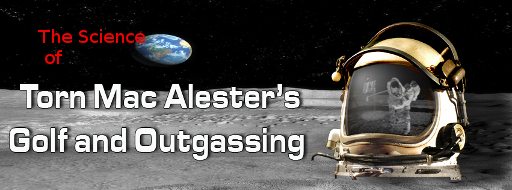Golf and Outgassing is included in the collection The Lunadyne Incident and Other Stories by Torn MacAlester.
A sixty-year-old Moon mystery prompts Colonel Annie Macturner to make a risky decision. Intrigued by an interview designed to manipulate, Milton Johnson, a candidate that conflicts with her highly distinguished military background, is selected as her crew-mate. Can Annie solve the landing site mystery and unravel Milton’s enigma before a life-threatening collision with the past occurs? Join Annie on every bounding step of her journey as she traverses the Lunar surface and keeps you on the edge of your seat!

